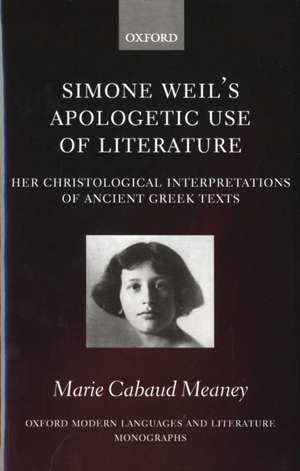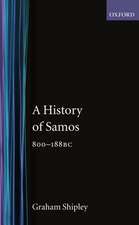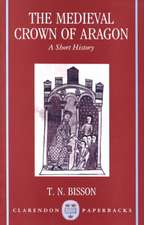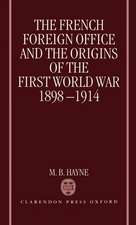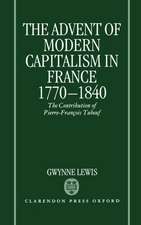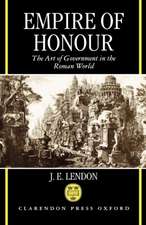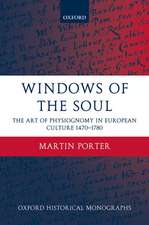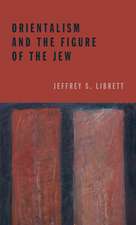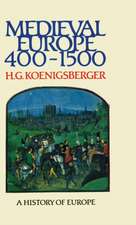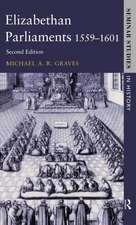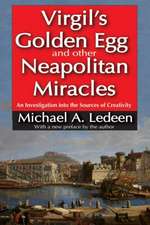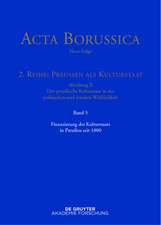Simone Weil's Apologetic Use of Literature: Her Christological Interpretation of Ancient Greek Texts: Oxford Modern Languages and Literature Monographs
Autor Marie Cabaud Meaneyen Limba Engleză Hardback – 6 dec 2007
Din seria Oxford Modern Languages and Literature Monographs
- 28%
 Preț: 498.33 lei
Preț: 498.33 lei - 28%
 Preț: 403.98 lei
Preț: 403.98 lei - 28%
 Preț: 472.87 lei
Preț: 472.87 lei - 28%
 Preț: 498.29 lei
Preț: 498.29 lei - 30%
 Preț: 529.12 lei
Preț: 529.12 lei - 27%
 Preț: 488.30 lei
Preț: 488.30 lei - 16%
 Preț: 471.17 lei
Preț: 471.17 lei - 28%
 Preț: 472.12 lei
Preț: 472.12 lei - 34%
 Preț: 1196.78 lei
Preț: 1196.78 lei - 34%
 Preț: 844.61 lei
Preț: 844.61 lei - 37%
 Preț: 875.43 lei
Preț: 875.43 lei - 34%
 Preț: 550.53 lei
Preț: 550.53 lei - 31%
 Preț: 339.43 lei
Preț: 339.43 lei - 34%
 Preț: 946.68 lei
Preț: 946.68 lei - 34%
 Preț: 977.57 lei
Preț: 977.57 lei - 31%
 Preț: 713.96 lei
Preț: 713.96 lei - 46%
 Preț: 447.51 lei
Preț: 447.51 lei - 47%
 Preț: 656.78 lei
Preț: 656.78 lei - 38%
 Preț: 327.25 lei
Preț: 327.25 lei - 34%
 Preț: 1169.33 lei
Preț: 1169.33 lei - 34%
 Preț: 1166.63 lei
Preț: 1166.63 lei - 34%
 Preț: 847.82 lei
Preț: 847.82 lei - 31%
 Preț: 861.06 lei
Preț: 861.06 lei - 27%
 Preț: 190.60 lei
Preț: 190.60 lei - 31%
 Preț: 363.64 lei
Preț: 363.64 lei - 23%
 Preț: 275.97 lei
Preț: 275.97 lei - 34%
 Preț: 1167.72 lei
Preț: 1167.72 lei - 45%
 Preț: 468.18 lei
Preț: 468.18 lei - 34%
 Preț: 1109.57 lei
Preț: 1109.57 lei - 34%
 Preț: 1079.86 lei
Preț: 1079.86 lei - 30%
 Preț: 699.95 lei
Preț: 699.95 lei - 30%
 Preț: 628.12 lei
Preț: 628.12 lei - 34%
 Preț: 934.25 lei
Preț: 934.25 lei - 31%
 Preț: 625.03 lei
Preț: 625.03 lei - 34%
 Preț: 991.94 lei
Preț: 991.94 lei - 34%
 Preț: 816.41 lei
Preț: 816.41 lei - 34%
 Preț: 829.26 lei
Preț: 829.26 lei - 30%
 Preț: 773.81 lei
Preț: 773.81 lei - 34%
 Preț: 530.74 lei
Preț: 530.74 lei - 30%
 Preț: 658.73 lei
Preț: 658.73 lei - 34%
 Preț: 845.75 lei
Preț: 845.75 lei - 31%
 Preț: 802.74 lei
Preț: 802.74 lei - 34%
 Preț: 1034.42 lei
Preț: 1034.42 lei - 34%
 Preț: 1254.44 lei
Preț: 1254.44 lei - 31%
 Preț: 387.21 lei
Preț: 387.21 lei - 51%
 Preț: 699.57 lei
Preț: 699.57 lei - 28%
 Preț: 462.34 lei
Preț: 462.34 lei - 34%
 Preț: 947.44 lei
Preț: 947.44 lei - 34%
 Preț: 887.47 lei
Preț: 887.47 lei
Preț: 786.79 lei
Preț vechi: 1133.18 lei
-31% Nou
Puncte Express: 1180
Preț estimativ în valută:
150.55€ • 157.51$ • 125.06£
150.55€ • 157.51$ • 125.06£
Carte tipărită la comandă
Livrare economică 22-28 martie
Preluare comenzi: 021 569.72.76
Specificații
ISBN-13: 9780199212453
ISBN-10: 0199212457
Pagini: 264
Dimensiuni: 144 x 222 x 18 mm
Greutate: 0.43 kg
Editura: OUP OXFORD
Colecția OUP Oxford
Seria Oxford Modern Languages and Literature Monographs
Locul publicării:Oxford, United Kingdom
ISBN-10: 0199212457
Pagini: 264
Dimensiuni: 144 x 222 x 18 mm
Greutate: 0.43 kg
Editura: OUP OXFORD
Colecția OUP Oxford
Seria Oxford Modern Languages and Literature Monographs
Locul publicării:Oxford, United Kingdom
Recenzii
Meaneys book represents an important contribution to our study of the reception of classical texts. In collecting and analyzing Weils scattered and often fragmentary writings on Greek literature for the first time, Meaney provides a valuable service for scholars and students of the classics, French literature, and comparative and religious studies
Has the author managed to convince the reader at the end of this thoughtful and well argued study of the apologetic nature of Simone Weil's project in the last years of her short life? It seems to us yes, if one follows the philosopher in the extreme openness of her interpretations and in her conviction that the light of the transcendent is the only possible presence of God on earth... One hopes that this inspired and well-constructed work will soon see the light in French in order to make it accessible to an even wider public
Has the author managed to convince the reader at the end of this thoughtful and well argued study of the apologetic nature of Simone Weil's project in the last years of her short life? It seems to us yes, if one follows the philosopher in the extreme openness of her interpretations and in her conviction that the light of the transcendent is the only possible presence of God on earth... One hopes that this inspired and well-constructed work will soon see the light in French in order to make it accessible to an even wider public
